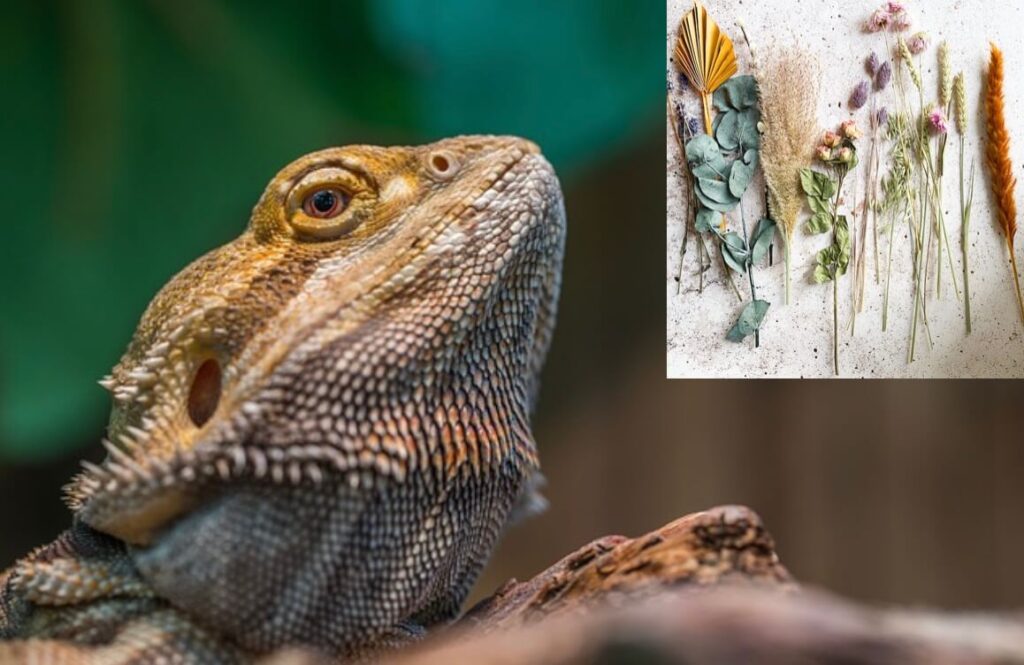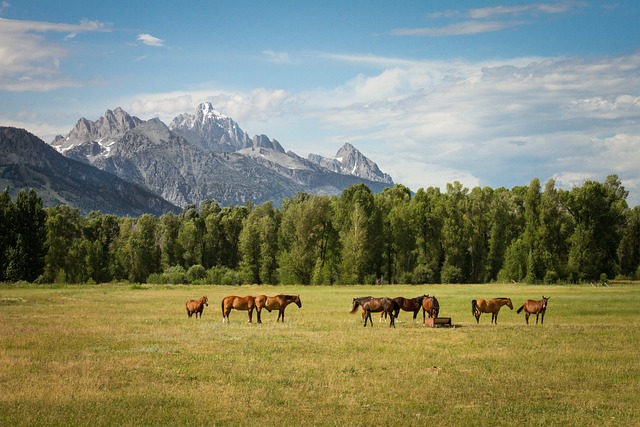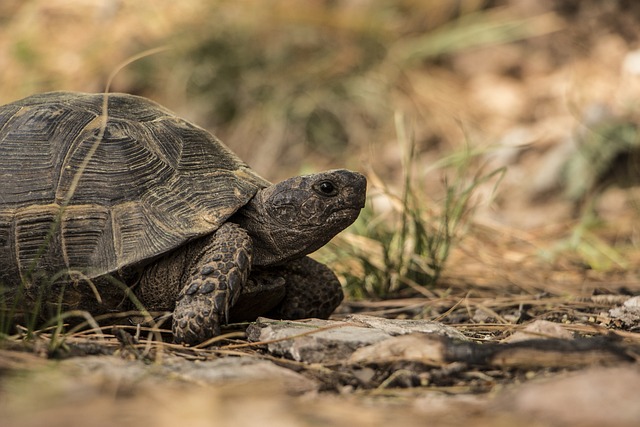If you’re wondering “What herbs can bearded dragons eat?” the answer is more complicated than you might think. Bearded dragons can eat a wide range of herbs, but usually only once a week at most. As well, there are some herbs they should only eat occasionally (twice a month at most), and some herbs they should never eat.
In this guide, we’ll give you the common herbs that your beardie can eat regularly, occasionally, and herbs they should never eat. We’ll also give you best practices for feeding your bearded dragon to keep them healthy and happy.
What herbs can bearded dragons eat?
- What herbs can bearded dragons eat?
- Herb Nutritional Value for Bearded Dragons:
- Potential risks of feeding herbs to your bearded dragon:
- Herbs you can feed your bearded dragon more regularly:
- Herbs you can feed your bearded dragon occasionally:
- Herbs you should avoid feeding your bearded dragon:
- What should you do if your beardie eats too many herbs?
- Frequently Asked Questions (FAQ): What herbs can bearded dragons eat?
- Foods bearded dragons can eat:
- Getting your bearded dragon calcium:
- Vegetables to feed your bearded dragon:
- Insects to feed your bearded dragon:
- How often should you feed a bearded dragon?
- What should a bearded dragon not eat?
- Recap: What herbs can bearded dragons eat??
Herb Nutritional Value for Bearded Dragons:

Most herbs contain vitamins, minor amounts of calcium, electrolytes, and protein.
A note on phosphorus and oxalates: In bearded dragons, it’s important to be aware of the phosphorus and calcium content in food you feed them. Why? Bearded dragons need a good amount of calcium to grow and to maintain bone and muscle health in adulthood. However, phosphorus inhibits the absorption of calcium if there’s too much of it, relative to the calcium amount. Similarly, oxalates bind to calcium and prevent them from being absorbed properly.
You should aim for a 2:1 ratio of 2 parts calcium to 1 part phosphorus. Unfortunately, almost all herbs don’t meet this 2:1 ratio as they only contain a tiny amount of calcium. They also have too many oxalates to feed beardies regularly. We’ve outlined ways to increase your beardie’s calcium intake below as well.
Potential risks of feeding herbs to your bearded dragon:
If you were to only feed your bearded dragon herbs daily with no other vegetables, they would suffer from a calcium deficiency and over time, it would harm their bone and muscle health. This could lead to brittle bones and even paralysis.
As well, many herbs are quite high in acid, and over feeding them on high acid herbs would hurt your beardie’s sensitive digestive systems.
Herbs you can feed your bearded dragon more regularly:
You can feed your beardie these herbs mixed in with their vegetables about once a week, at most.
- Lavender
- Tarragon
- Fennel
- Lemongrass
Herbs you can feed your bearded dragon occasionally:
These herbs are either high acid or high in oxalates. Either way, if you feed your beardie too much of any of these, it will hurt their stomachs.
Herbs you should avoid feeding your bearded dragon:
These herbs are potentially toxic to your bearded dragon, so avoid feeding it to them if you can help it.
- Garlic
- Chives
What should you do if your beardie eats too many herbs?
If your beardie eats a small amount of herbs, even garlic or chives, don’t panic. They’ll likely be just fine. However, if they consume a large quantity of herbs, monitor them closely for symptoms of a strong reaction. This could include:
- Bloating
- Diarrhea
- Spitting up
- Vomiting
- Abnormal behaviors
Give them water to flush out the herbs as well as a warm bath to calm them and encourage a bowel movement. If all else fails, call your vet for an expert opinion.
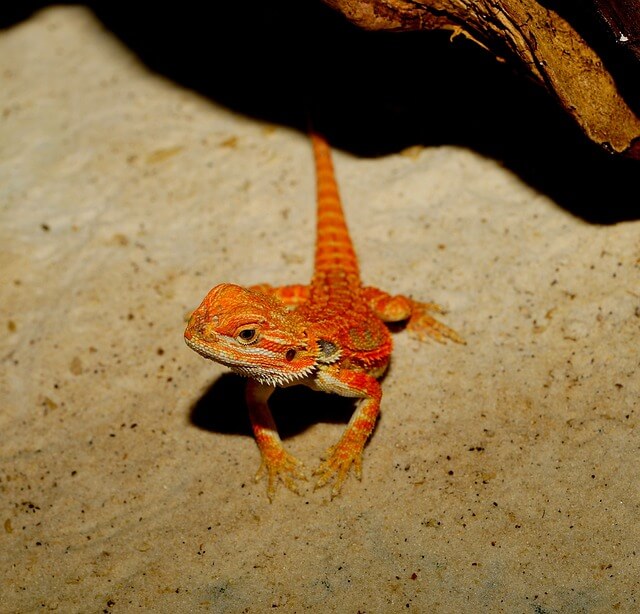
Frequently Asked Questions (FAQ): What herbs can bearded dragons eat?
What plants can bearded dragons eat?
Bearded dragons thrive off a diet of plants, including plants like collared greens and kale. Avoid giving them onions, garlic, and mushrooms. If a plant is poisonous to humans (like poison ivy), it’ll likely be poisonous to your beardie.
Can bearded dragons eat parsley everyday?
No, it isn’t recommended for bearded dragons to eat parsley everyday. They should be getting most of their plant matter from large leafy greens, and should be eating parsley and other herbs every few weeks, sprinkled in as a treat.
Can bearded dragons eat lemon balm?
Although the lemon balm smells like citrus (which bearded dragons can not eat), it’s safe to put in your dragons terrarium. Bearded dragons can eat lemon balm, but they might not be interested in eating it. If they don’t go for the lemon balm, it will add a nice aroma to their environment.
Can bearded dragons eat carrots?
Bearded dragons can eat carrots, raw or cooked, and they provide nutritional value to them.
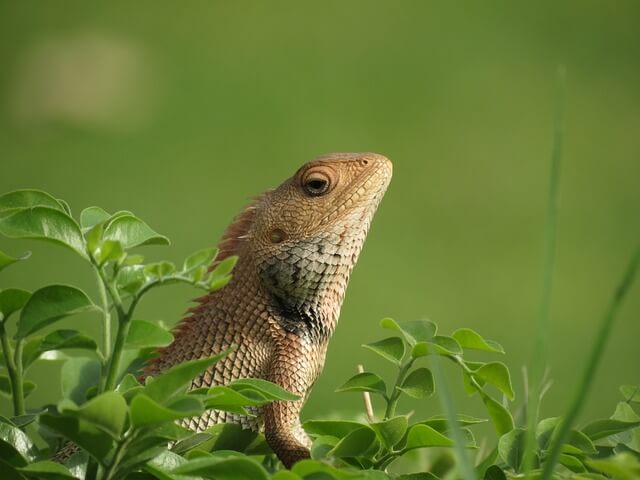
Foods bearded dragons can eat:
If you’re wondering what you should feed a bearded dragon, read our guidelines below. Bearded dragons are insectivores, which just means they thrive on insects as well as plant materials.
If you have a juvenile bearded dragon (between six and eighteen months old), give them about 80% vegetables and 20% live insects.
As your bearded dragon transitions into adulthood, give them the inverse, so 20% plant materials and 80% insects.
Getting your bearded dragon calcium:
Calcium is especially vital to a bearded dragon, especially a young one that is still growing. There are several ways to introduce more calcium into your beardie’s diet:
- Add in more high calcium vegetables like dandelions, bok choy, and collard greens.
- Dust calcium powder over their insects and vegetables to increase calcium levels.
- Make sure they’re getting their 12 hours of UVB exposure as they need this light to be able to properly absorb nutrients.
Vegetables to feed your bearded dragon:
- Peas
- Dandelion
- Green beans
- Cabbage
- Zucchini
- Pumpkin
- See our full list of vegetables to feed your bearded dragon
Note: Bearded dragons can also eat fruit in moderation. See here for a complete list of fruits bearded dragons can eat.
Insects to feed your bearded dragon:
- Crickets
- Kingworms
- Waxworms
- See our full guides to insects you can feed your bearded dragon and worms to feed your bearded dragon
Quick note: Live insects raised by you or bought from the pet store are best because they’re definitely pesticide free.
How often should you feed a bearded dragon?
During the first 3-6 months of your beardie’s life, try to feed them four to five times a day by giving them as many insects as they’d like in 10 minutes. They’re growing and need lots of protein during this stage.
Reduce the number of feedings to about two to three times a day when they’re growing into their juvenile years (between six and eighteen months).
As they become an adult, you can feed them once daily.
What should a bearded dragon not eat?
Avoid feeding your bearded dragon:
- Onions
- Leeks
- Chives
- Mushrooms
- Garlic
- Acidic fruit like oranges, lemons
- Rhubarb (can be toxic to them)
- Avocados (surprisingly, these make them ill)
- Eggplant
- Insects caught in the wild (there may be pesticides covering them)
- Venomous insects
- Dairy of any kind
- Rice and grains of any kind
- Frogs or toads
- Ham or other processed meats
Recap: What herbs can bearded dragons eat??
- Bearded dragons can eat most herbs! They should stick to eating most herbs every two weeks at most.
- Avoid feeding them garlic and chives.
- Make sure to feed them a balanced diet that consists primarily of insects and vegetables.
For our full list of food to feed a bearded dragon, see our guide here.
Related articles:

